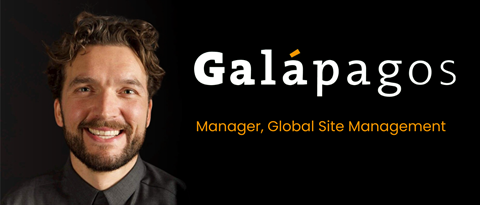
Kai Touw, Global Site Manager at Galapagos, talks about the processes required to generate the exact same high quality of T cells at different locations.
Cell therapy is a promising treatment for blood cell cancers and more recently, it has also shown promising results in solid tumors. Although current cancer cell therapies have made continued progress, long lead times, costly central manufacturing and complex logistics continue to be limiting factors for large-scale capacity and broad patient access globally. To address these challenges, Galapagos is implementing a differentiated, decentralized, cell therapy manufacturing platform that has the potential to deliver fresh, fit cell with a seven day vein-to-vein time, enabling greater physician control and a significantly improved patient experience.
In 2022, Galapagos entered into the field of cell therapy research and development through the acquisitions of CellPoint (in the Netherlands) and Abound Bio (in the U.S). The transactions provide Galapagos with end-to-end capabilities in cell therapy development and offer the potential for a paradigm shift in the space through the implementation of a decentralized cell therapy manufacturing model and cutting-edge fully human antibody-based capabilities to design next-generation cell therapies.
CAR T cell therapy
Autologous CAR T cell therapy is a type of treatment in which a patient’s T cells are changed ex vivo so they will attack cancer cells. T cells are taken from a patient’s blood. In the laboratory, a gene for a receptor that recognizes the cancer cells in the patient is added to the T cells, and the modified T cells are administered back to the patient by infusion.
“While many other companies have chosen to do the processing of the T cells at a central location, we do the processing at locations closer to the patient”, says Touw (pictured above). “These can be hospitals, blood banks or other GMP facilities close to cancer treatment centers, making it possible to treat patients without freezing the cells. It takes median 7 days between the collection of blood from the patient and the return of the processed T cells to the patient. The cells are fresh and fit, and don’t need to be frozen and thawed before reaching the patient. This is in contrast to manufacturing at a central location which often takes longer, requires complicated distance logistics and freezing and thawing.”
Touw has been working at Galapagos since last year. “Manufacturing of different patient’s therapies take place at different locations, but we need to ensure that patients receive the exact same high quality of therapy independent of the location. Therefore, we must make sure that everything is done in exactly the same way, building a manufacturing process on single-use components, which we can control at each location. Staff must also be trained to carry out everything according to the same process.” Galapagos has several manufacturing sites in Europe and the U.S.
Monitoring
To ensure the same high quality, Galapagos uses a platform which consists of an end-to-end electronic workflow management and monitoring system, a functionally closed, automated manufacturing platform for cell therapies (using Lonza’s Cocoon®) and a proprietary quality control testing and release strategy.
Touw: “It means that every step in the treatment process is monitored in detail and recorded. All the parameters of the cells in the bioreactor are monitored and controlled so that cells can stay in optimal conditions. All used components are of course single-use.”
Today, Galapagos has three different CAR T product candidates in Phase 1/2 clinical trials in severe hematological cancers in Europe in patients with relapsed/refractory (R/R) non-Hodgkin lymphoma (NHL), R/R chronic lymphocytic leukemia and Richter transformation, and R/R multiple myeloma. Most recently, Galapagos got clearance from the U.S. FDA to initiate the Phase 1/2 study with the CAR T candidate in R/R NHL in the U.S.














